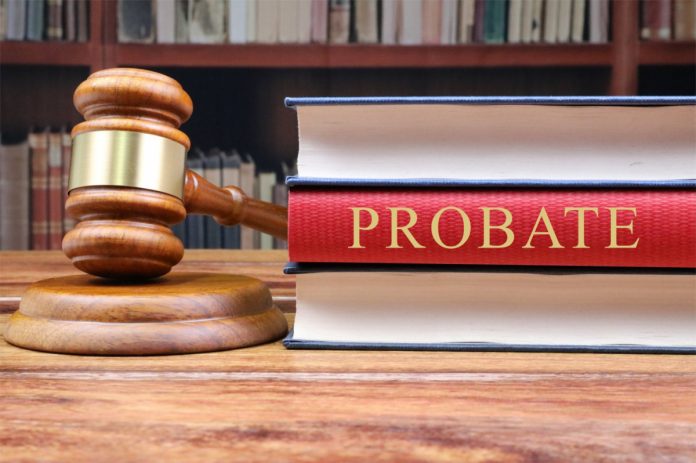When a loved one passes away, it can be an emotionally overwhelming time. Dealing with grief and loss is a heavy burden, and having to navigate the often complex legal landscape of inheritance can feel like an added weight. It’s a time when many people seek the advice of lawyers in Danville to help them understand the process. Understanding your rights as a beneficiary is crucial to ensuring you receive what your loved one intended and to protect yourself during a vulnerable period. This article will provide a comprehensive guide to help you navigate this intricate process and ensure your loved one’s wishes are honored.
What is a Beneficiary?
A beneficiary is an individual, organization, or entity designated to receive assets or property from the estate of a deceased person. This designation can be made through a will or a trust. The inheritance can encompass a wide range of assets, from tangible items like real estate, vehicles, and personal belongings to intangible assets such as cash, stocks, bonds, and intellectual property rights. Essentially, a beneficiary is the recipient of the deceased person’s generosity, as outlined in their estate plan.
Types of Inheritance
There are several ways in which you might become a beneficiary of an inheritance. Understanding these different avenues is the first step in protecting your rights.
A will is a legal document that serves as a roadmap for distributing a person’s assets after their death. It outlines their wishes regarding who receives what and how their estate should be managed. If you are named in a will as a beneficiary, you have a legal right to receive the inheritance as specified in the document. This could be a specific item, a sum of money, a percentage of the estate, or a combination of these.
A trust is a fiduciary arrangement where a person, known as the grantor or settlor, transfers assets to a trustee. The trustee then holds and manages these assets for the benefit of the beneficiaries named in the trust document. Trusts can be created during the grantor’s lifetime (living trust) or established to take effect upon their death (testamentary trust). Trusts offer various benefits, such as avoiding probate, providing for minor children, or managing assets for beneficiaries who may not be able to manage them independently.
When a person dies without a valid will, they are said to have died “intestate”. In these situations, the distribution of their assets is governed by state intestacy laws. These laws vary from state to state but generally prioritize spouses, children, and other close relatives in a predetermined order. If no relatives can be located, the estate may ultimately escheat (revert) to the state. Understanding intestacy laws can be important even if there is a will, as they may come into play if the will is deemed invalid or if it doesn’t account for all of the deceased’s assets.
Your Rights as a Beneficiary
Being named a beneficiary comes with certain rights that allow you to protect your inheritance and ensure fair treatment:
The Right to Information. You have the right to be informed about the existence of a will or trust and to receive a copy of the relevant documents. You can also request information about the assets included in the estate and their value.
The Right to Accountings. If you are a beneficiary of a trust, you have the right to receive regular accountings from the trustee. These reports detail how the trust assets are being managed and distributed.
The Right to Challenge the Will or Trust. If you believe there are issues with the will or trust, such as fraud, undue influence, or lack of capacity, you have the right to challenge its validity in court. Trust dispute lawyers can be instrumental in these situations.
The Right to Receive Your Inheritance. Ultimately, you have the right to receive your inheritance as outlined in the will or trust. This includes the timely distribution of assets and proper management of any ongoing trusts.
Protecting Your Inheritance
Protecting your inheritance requires proactive steps and vigilance. Here are some key strategies to safeguard your interests. First of all, stay informed throughout the entire process, whether it’s probate (for wills) or trust administration. Communicate with the executor of the will or the trustee of the trust. Don’t hesitate to ask questions and request clarifications if anything is unclear or seems amiss. Being engaged and informed can help you identify potential problems early on.
Maintain meticulous records of all communications, documents, and transactions related to the inheritance. This includes correspondence with the executor or trustee, copies of the will or trust documents, account statements, and any other relevant information.
If you have concerns about your rights, suspect any wrongdoing, or encounter difficulties in the inheritance process, consult with an experienced estate planning attorney. They can provide expert guidance, protect your interests, and advocate for you if necessary. In situations where a beneficiary may be vulnerable or unable to manage their inheritance, a conservatorship attorney can help establish legal protections.
Disagreements among beneficiaries or with the executor/trustee are not uncommon. Before resorting to litigation, consider mediation as a way to resolve disputes amicably and outside of court. Mediation involves a neutral third party who facilitates communication and helps the parties reach a mutually acceptable agreement.
Common Challenges and How to Address Them
Will contests occur when someone challenges the validity of a will. This can happen for various reasons, such as claims that the deceased was unduly influenced by someone, lacked the mental capacity to make a will, or that the will was not properly executed according to legal requirements. Will contests can be emotionally charged and legally complex, often requiring extensive investigation and court proceedings.
Trust disputes can arise from disagreements among beneficiaries or with the trustee regarding the management or distribution of trust assets. These disputes might involve allegations of breach of fiduciary duty, mismanagement of funds, or disagreements over the interpretation of the trust document. Resolving trust disputes often requires legal expertise and may involve negotiation, mediation, or even litigation.
When a person dies, their creditors may file claims against the estate to recover outstanding debts. It’s important to understand the priority of these claims and how they might affect the distribution of assets to beneficiaries. In some cases, certain assets may be protected from creditors, while others may be used to satisfy debts before any inheritance is distributed.
Inheritance can also have significant tax implications, depending on the size of the estate and the applicable state and federal laws. Estate taxes, inheritance taxes, and income taxes on inherited assets are all factors to consider. Consulting with a tax advisor or estate planning attorney can help you understand your tax obligations and minimize potential liabilities.
Conclusion
Navigating the complexities of inheritance can be challenging, especially during a time of grief. However, by understanding your rights as a beneficiary and taking proactive steps to protect your interests, you can ensure that your loved one’s wishes are carried out and that you receive your rightful inheritance. Remember, seeking guidance from lawyers specializing in estate planning and probate can be invaluable in navigating this intricate process and safeguarding your inheritance.




























